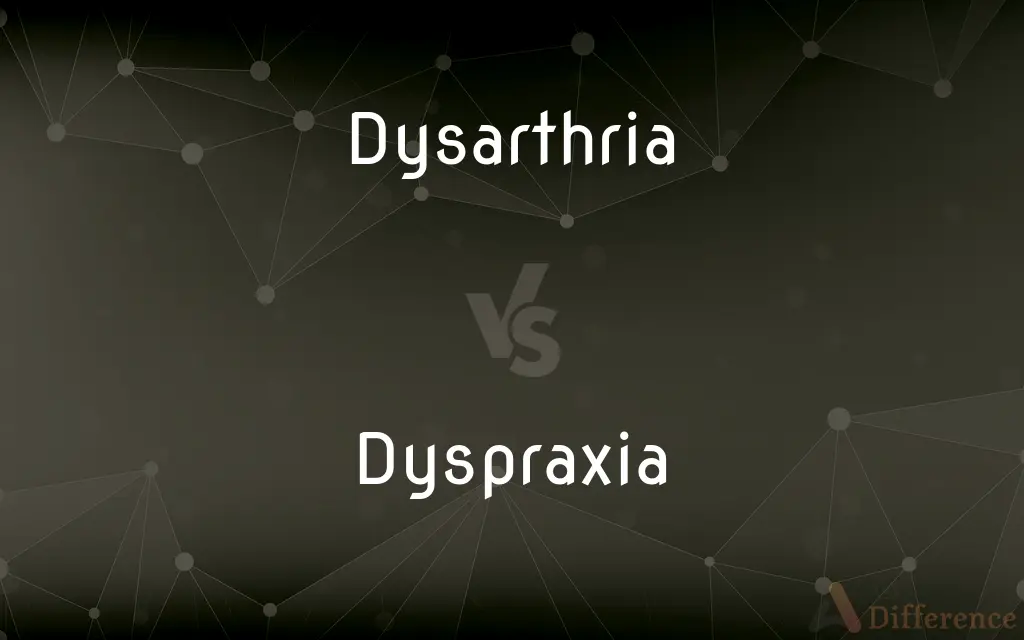Dysarthria vs. Dyspraxia — What's the Difference?

Difference Between Dysarthria and Dyspraxia
ADVERTISEMENT
Compare with Definitions
Dysarthria
Dysarthria is a motor speech disorder resulting from neurological injury of the motor component of the motor–speech system and is characterized by poor articulation of phonemes. In other words, it is a condition in which problems effectively occur with the muscles that help produce speech, often making it very difficult to pronounce words.
Dyspraxia
A developmental disorder of the brain in childhood causing difficulty in activities requiring coordination and movement.
Dysarthria
Difficulty in articulating words, caused by impairment of the muscles used in speech.
Dyspraxia
(medicine) A genetic neurological disorder where a person has motor skills severely below average due to their brain's inability to consistently send messages accurately to the body for the planning of motor movements.
He had to quit dishwashing at the restaurant because his dyspraxia made him unable to do the work.
Dysarthria
Difficulty in articulating words due to a disturbance in the form or function of the structures that modulate voice into speech; one of the first indicative symptoms of myasthenia gravis, brought about by an autoimmune response to acetylcholine receptors.
ADVERTISEMENT
Dysarthria
Impaired articulatory ability resulting from defects in the peripheral motor nerves or in the speech musculature
Share Your Discovery

Previous Comparison
Sukun vs. Shadda
Next Comparison
Daisy vs. Margaret













































